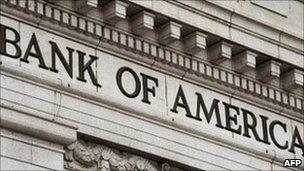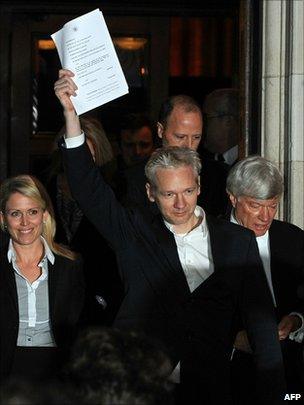Bank of America stops handling Wikileaks payments
- Published

The Bank of America said it stopped "transactions of any kind" for Wikileaks
Bank of America has stopped handling payments for whistle-blowing website Wikileaks, joining several other major financial institutions.
It said it acted because "Wikileaks may be engaged in activities that are... inconsistent with our internal policies for processing payments".
In response, Wikileaks urged its supporters to stop doing business with the bank - one of the world's largest.
MasterCard, PayPal and other companies earlier cut off Wikileaks' payments.
The financial institutions acted after Wikileaks - together with several major media organisations - began publishing thousands of secret US diplomatic cables, causing tension between Washington and some of its allies.
Wikileaks founder Julian Assange was earlier this week freed on bail in the UK while facing extradition proceedings to Sweden over sexual assault allegations.
Mr Assange, 39, dismissed the claims as part of a "smear" campaign.
He also said he was worried about an attempt to extradite him to the United States, adding that Washington was conducting an "aggressive" and "illegal" investigation into him and the website.

Julian Assange was freed on bail in the UK earlier this week
'Unethical practices'
In a statement, the North Carolina-based Bank of America said it would "not process transactions of any type that we have reason to believe are intended for Wikileaks".
The statement provided no further details.
Wikileaks responded in a message on Twitter, urging "all people who love freedom close out their accounts at Bank of America".
The website also called for businesses to "place your funds somewhere safer".
Wikileaks has recently said it will soon release documents that will point to "unethical" practices" at some US banks.
There has been speculation that the Bank of America could be one of the institutions mentioned in the US diplomatic cables.